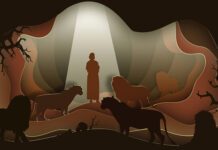During the period of Reformed scholasticism in the seventeenth and eighteenth centuries, Reformed theologians said that God legislates to Israel and to the new covenant church on two distinct bases: on the basis of divine natural law and on the basis of divine purpose. In this case, the theologians did not mean the lex naturalis, the law that is revealed in nature and in the conscience. By “natural law,” they meant those laws that are rooted and grounded in God’s own character. For God to abrogate these laws would be to do violence to His own person. For example, if God in the old covenant said, “You shall have no other gods before Me,” but now He says, “It’s OK for you to have other gods and to be involved in idolatry,” God would be doing violence to His own holy character. Statutes legislated on the basis of this natural law will be enforced at all times.
On the other hand, there is legislation made on the basis of the divine purpose in redemption, such as the dietary laws, that when their purpose is fulfilled, God can abrogate without doing violence to His own character. I think that’s a helpful distinction. It doesn’t answer every question, but it helps us discern which laws continue so that we can know what is pleasing to God.
This article originally appeared here and is used by permission.











